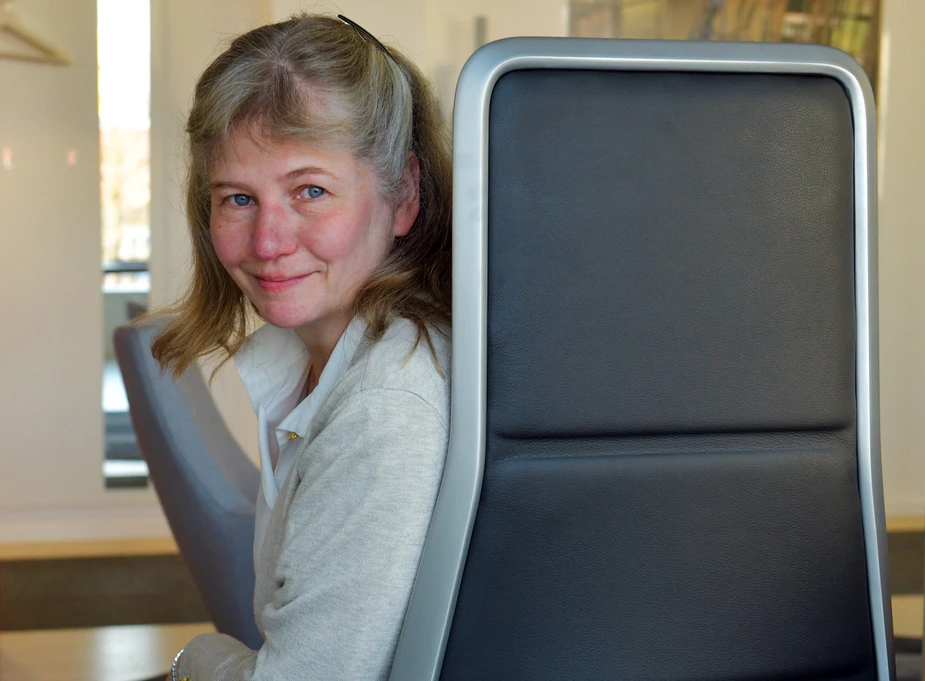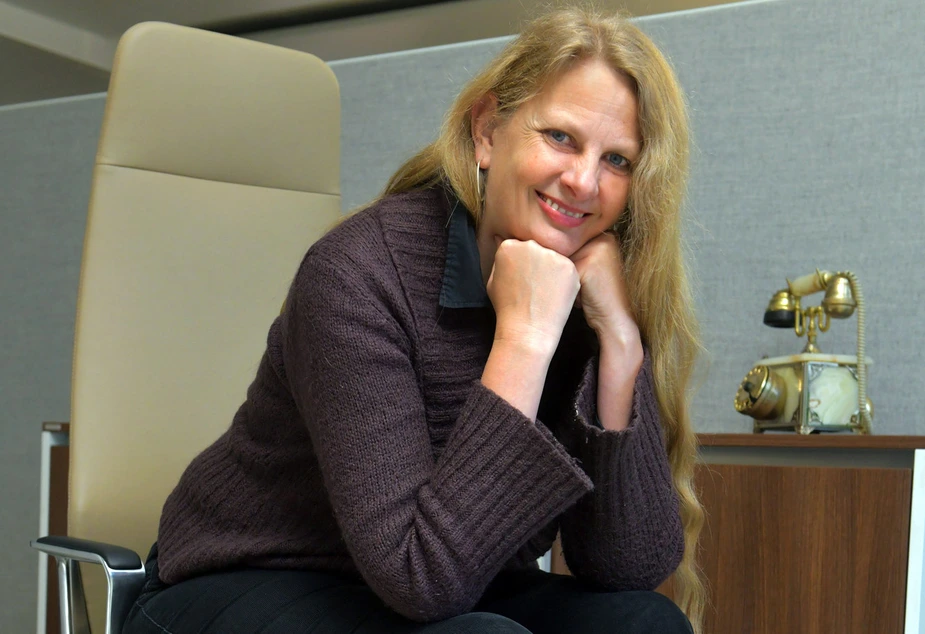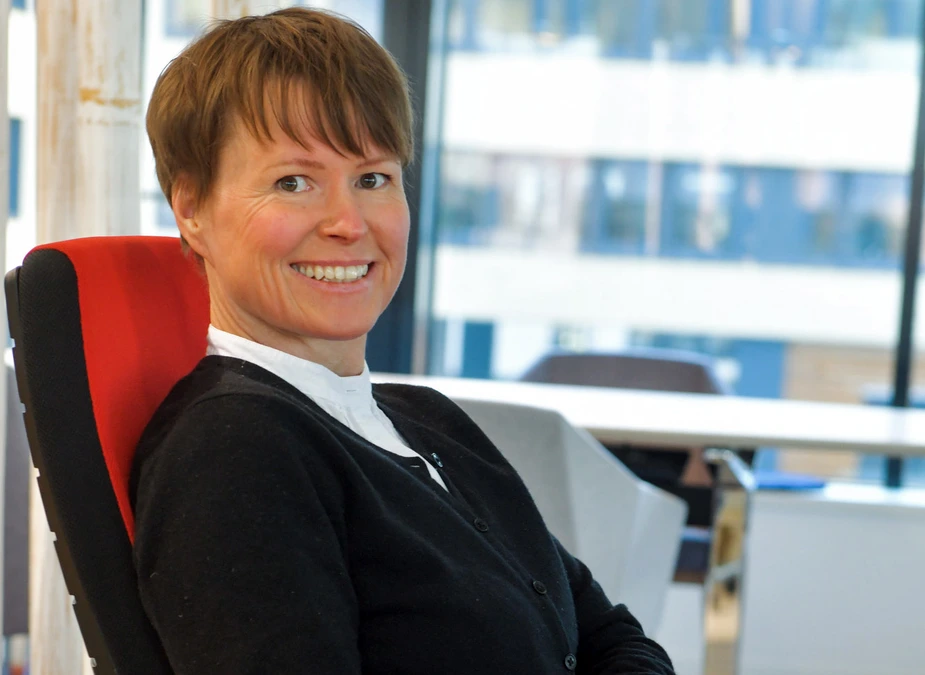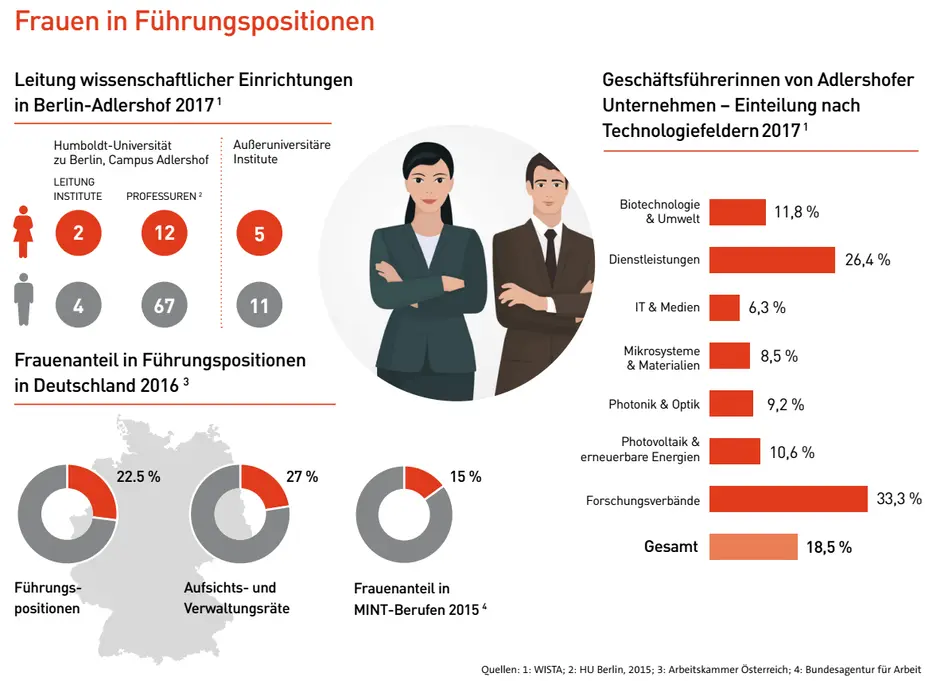Ladies first!
Successful female high-tech entrepreneurs in senior management positions
Women in senior management positions in business and science continue to be in short supply. The same applies to Adlershof. But there are some notable exceptions, which we want to present in the following as examples for imitation.
Ricarda Kafka is not sure why there are so few women in executive positions, but there is one thing the CEO of TRIOPTICS Berlin GmbH is sure about: “Unfortunately, it is still an issue that everybody needs to talk about, including men.” While TRIOPTICS boasts women in executive positions, at the end of the day, it is also dominated by men, says Kafka. Why? Her guess is: “This could be due to, on the one hand, the technology focus of my occupation,” she says. “On the other hand, women are still chiefly responsible for raising children and stay at home longer.” With people having families much later in life, periods of child-rearing often coincide with periods that are essential for career advancement.
It was that exact same issue of starting a family that kept Karola Lehmann, CEO of Proteome Factory AG, from accepting an offer to take over a company after graduation. “I suspect men probably think less about how to balance family and career,” she says. The situation changed completely when, at 45, she was asked again if she wanted to run the Proteome Factory AG. Nevertheless, the now 48-year-old’s position is quite rare.
Uta Franke, engineer and co-head of 5micron GmbH, deals with the fact that women are underrepresented in executive positions every day: “I had this recent experience: a vacancy at my company for a system and software developer yielded exclusively male applications. I found this regretful.”
Female engineers are underrepresented, especially in technology. “I remember the 10:1 ratio back in university.” However, the small number does not lead to executive positions. The Adlershof-based female entrepreneurs do not have a sure formula for overcoming the barriers of male-dominated environments. The only one they do have is: take action! “I virtually always worked in male-dominated teams,” says Kafka, “it started during a-levels, went on when I studied physics and didn’t change in any of my professional teams.” Did she do things differently? “Hard to say,” she says and stops to think. It might have been her organisational talent and “a certain affinity to tutelage. I’m not somebody who keeps my opinion to myself. I’m sure that didn’t always go down well, but it made me CEO and I’ve been here now for 15 years.”
As a biotechnician, Karola Lehman had the advantage of working in a less male-dominated field. Apart from that, she says: “Competence is paramount.” However, this is not invariably the case, which she experienced while applying for executive positions: “When your between 30 to 40, pregnancy is the elephant in the room.”
During her time in mid-level staff, Ute Franke was always under the impression that “there was a predetermined cap on her personal development in an environment dominated by male executives.” This could only mean one thing for her: “Changing things up was the logical next step for me to take up my ideas and to improve – and that’s when I decided to become self-employed.” She also did this because she enjoyed setting things in motion. “I am a very curious person and I don’t shy away from new things,” she says laughingly. “I trust my own skills, my colleagues and, above all, my business partner Jean Blondeau!“
Female entrepreneurs in Adlershof are committed to changing this unsatisfactory situation. Ute Franke, for example, goes to MINT workshops for school children to tell them about her daily business: developing high-precision measurement systems for customers in aviation, including Airbus and Rolls Royce. “This usually gets them very interested – both girls and boys,” she says.
Will this get easier for women in the future? “We can already observe growing equality between men and women in the workplace regarding childcare, parental leave, etc., on the one hand, and women’s expertise and skills on the other,” says Franke optimistically. Kafka also feels a change in attitudes, but she begs to differ: “The general atmosphere in Adlershof and the positive way its infrastructure has developed makes it easier for women to assume responsibility, compared to more rural areas, where a more traditional image of women prevails,” she says. “It looks like, overall, this is changing towards more cross-gender approach. But I am sure I won’t live to experience full equality.”
By Chris Löwer for Adlershof Journal
www.proteome-factory.com
www.trioptics-berlin.com
www.5micron.de



